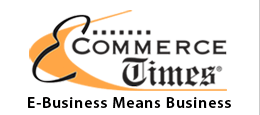Why Oracle Will Buy Salesforce.com?
With the recent acquisition of WebEx by Cisco Systems, speculation has been rising that Salesforce.com may be the next major Software-as-a-Service (SaaS) company to be bought. You can tell folks that you heard it from me first that the purchase will be made by Oracle within the next 18 months.
No, I don’t have any inside information. But, I can read the tea leafs and they tell me that Salesforce.com is too attractive for an even bigger player not to buy it. The software services company has over 650,000 subscribers and added 90,000 new subscribers during the most recent fiscal quarter ending in January 31.
While profits have slipped due to the company’s investments in new offerings and service infrastructure, the outlook for Salesforce.com’s services has never been better. Not only is customer receptivity growing rapidly, but Salesforce.com’s ability to penetrate new markets and gain a greater share of its current customers’ end-users and budget is also strengthening.
For instance, Salesforce.com’s deal and average installation size are both growing. The company is rolling out a new series of vertical market solutions, starting with on-demand financial services which could disrupt Bloomberg’s stronghold in that sector. And, Salesforce.com is also offering end-to-end, on-demand software development, delivery and distribution support to other SaaS vendors via its AppExchange, AppStore and Apex.
With Marc Benioff serving as its chief evangelistic officer (“ceo”), Salesforce.com is not only the largest independent SaaS vendor by far, it is also the undisputed innovator and spiritual leader of the SaaS movement.
Cisco Systems’ acquisition of WebEx clearly demonstrated that SaaS, and more broadly the idea of subscription services, is becoming a priority among the major technology vendors. Not only did Cisco buy the second largest player in the SaaS sector, it also paid a healthy premium to buy its way into the SaaS marketplace.
Oracle has shown a penchant to do the same thing. Its acqusitions of Siebel, PeopleSoft and, most recently, Hyperion show that the company will use its enormous cash reserves to add more applications to its portfolio, and eliminate competitors in the process.
Larry Ellison seems to take particular pleasure in acquiring companies founded or headed by former Oracle executives, Siebel and PeopleSoft being the most obvious examples. As the industry’s reigning Machivellian leader, Ellison relishes the opportunity to steal away software companies which threaten Oracle’s supremacy and are led by his numerous proteges.
Salesforce.com is such a company and Marc Benioff is one of those proteges. And, it doesn’t hurt that Salesforce.com is headquartered near Oracle’s home base and the company’s operations are built on Oracle databases.
While the upfront cost of acquiring Salesforce.com may be extravagent, the long-term benefits could be enormous. THINKstrategies’ research clearly shows that the SaaS movement isn’t a momentary fad, but a fundamental seachange in the way organizations of all sizes are acquiring software functionality to meet their business requirements. Although standalone SaaS companies must face significant financial hurdles ramping up a sufficient revenue stream from subscriptions, Salesforce.com has crossed this chasm and is becoming a high-growth annuity revenue and profit machine.
Others have speculated that Google will be the buyer of Salesforce.com. This may be true, but I doubt it. However, I think it is likely that Google will take a run at Salesforce.com when Oracle does make a bid for the company. And, I wouldn’t be surprised if Google wins a tug of war with Oracle to gain control of Salesforce.com. It has plenty of money. It has a similar corporate culture and executive leadership committed to changing the old rules. It could also leverage Salesforce.com’s application portfolio, service delivery infrastructure and AppExchange partner ‘ecosystem’ to gain new channels to market to corporate customers.
Don’t get me wrong, I would hate to see Salesforce.com be acquired. It has been instrumental in accelerating the growth of the SaaS movement. An acquisition by Oracle, or someone else, would leave a leadership void in the SaaS market which would be difficult to fill. Although the SaaS movement would continue to move forward, it would lose momentum and might never reach the level of importance which it is quickly attaining with Salesforce.com at the forefront.




